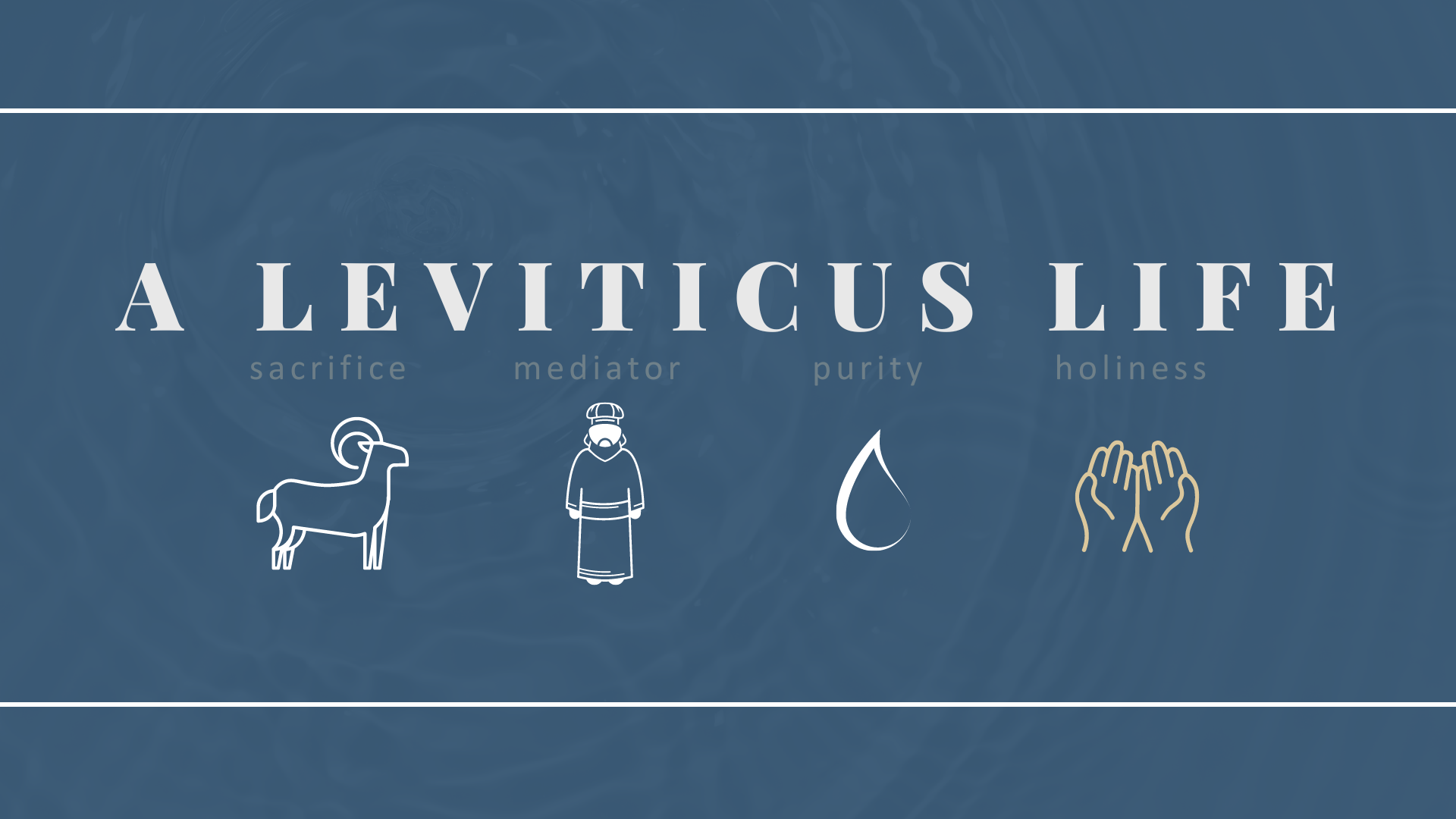Below are Pastor Ben's sermon notes from this past Sunday, in case they may be helpful for further study. To listen to the sermon, click the link above.
Intro: (1) four big themes — sacrifice (1-7), mediator (8-10), purity (11-16), holiness (17-27) (2) four considerations of OT law — divinely inspired, original context, Christological fulfillment, current application (3) holiness — separated from sin, ultimate-value/honor toward the Lord
1. Holy Worship (17): (1) v.3-4 — centralized (2) “worshipers” — what does this look like? (cf. Leslie staff review) (3) v.11 — role of blood (cf. communion) (4) assessing rival objects of worship
2. Holy Sexuality (18): (1) v.1-5, 30 — sexual ethics defined by who God is, not what we want (2) two outcomes of sexual self-control — differentiates God’s people, cultivates a valuing of other people
3. Holy Living (19): (1) v.1-2, 18 — vertical and horizontal aspects (cf. 11:44-45, 1 Peter 1:14-16) (2) how we value others a reflection of how much we value the Lord (cf. guy flying with rare coin)
4. Holy Obedience (20): (1) v.22-24 — expectation of obedience (2) result of God’s favor, not a way to earn his favor (3) offence and consequence (cf. timeouts with Lee)
5. Holy Leaders (21-22): (1) 21:1a, 22:1-2a, 31-33 — experience of God tied to leaders (2) three apps — Christ (Heb. 10:11-14), spiritual leaders (Heb. 13:7, 17), all believers (1 Peter 2:9-10)
6. Holy Rhythms (23): (1) 23:1-2, topic headings (2) walk through a year at Grace (3) special days vs. normal days, activity vs. breaks (4) God’s people set apart through resisting incessant production
7. Holy Presence (24): (1) God our light (v.1-2), our provider (v.5a,8), our judge (2) God’s presence as navigator, provider, arbiter (3) may or may not “feel” his presence
8. Holy Freedom (25): (1) v.3-4, 8-10 — freedom for land, people (2) NT — Romans 6:22, 8:22-23 (3) trust, sharing — where are these hard? (4) what sin or wound do you desire freedom from?
9. Holy Choices (26): (1) obedience (v.3-4, 11-13) vs. disobedience (v.14-16) (2) blessing, curse —fulfillment in Christ (3) v.40-42 — grace final word over all our choices for those who are humble
10. Holy Promises (27): (1) giving of ourselves (v.1-2) and possessions (v.9,14,16) (2) to follow Christ is to give up ownership, Christian life is living this out (3) importance of integrity (i.e. not pretending)
Conclusion: which one of these is an area the Lord may want you to grow in?



